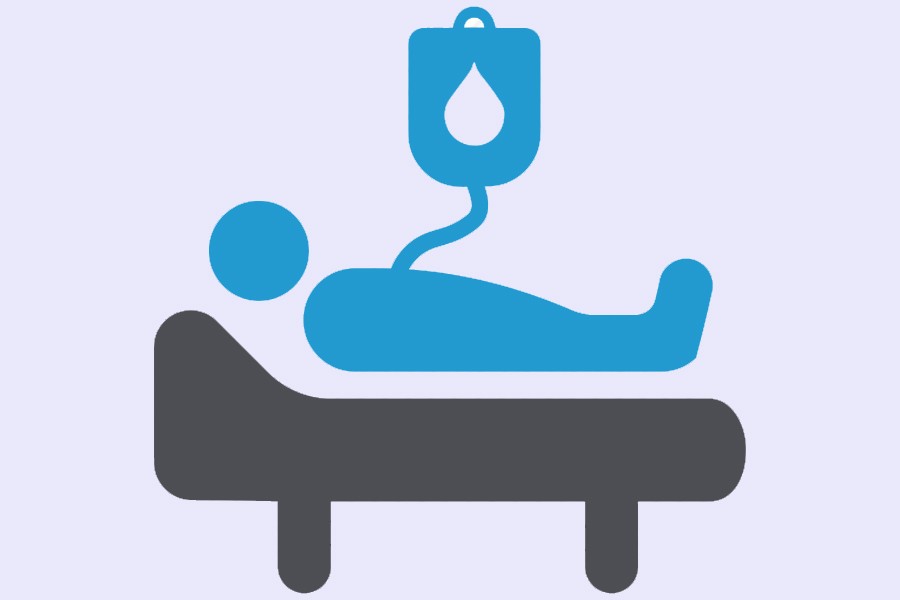In medical emergencies, minutes make a difference between life and death. If minutes extend to hours on account of refusal of admission to hospitals -- one after another, the time lapse for medical attention unsurprisingly proves fatal. The death of newborn twins on Monday inside an ambulance on Bangabandhu Sheikh Mujib Medical University's premises once again exposes the woeful inadequacy of the healthcare system. The twins born in unusual circumstances on an auto-rickshaw on way to hospital needed immediate medical attention but although the Islami Bank Hospital at Mugda admitted their mother, they advised their father to take them to Dhaka Shishu Hospital. At the Shishu Hospital, the charge demanded was beyond the father's affordability and he then rushed to the BSMMU where after a long wait, the newborns expired without medical attention.
The shocked and bewildered father then arrived at the High Court (HC) premise with the bodies of the twins to seek justice for the negligence at the three hospitals. On information, a HC bench issued a suomoto rule on the authorities of the three hospitals to show cause why their inaction for admission and medication should not be declared illegal. The Islami Bank Hospital may have rightly referred to the Shishu Hospital for better treatment because the latter is a specialised medical care facility for babies and children. But at this hospital treatment is not free. Perhaps the babies needed treatment in intensive care unit (ICU) and a charge of Tk 5,000 for each baby a day was beyond the father's means. So, the poor man went to the BSMMU only to be disappointed.
Now this is not for the first time that critical patients including expectant mothers requiring immediate medical attention were turned away from hospital gates. It so happened that poor mothers, thus turned out, gave birth on the pavement even in normal time before the pandemic. The least said about the ordeal many patients suffering from diseases like heart complications had to undergo during the pandemic the better. A father of a doctor engaged in treatment of Covid patients had to be taken to as many as six hospitals before his admission to Kurmitola General Hospital where he breathed his last. He had died there before a doctor could pay him attention. More such cases were reported during the peak period of the pandemic.
Admittedly, hospitals are mostly overwhelmed. With all their limitations, at times they set unique humanitarian examples. There are cases, contrary to refusal of admission, where abandoned babies brought to hospitals have been given the best possible care, courtesy of a few doctors and nurses. A sterling example is the successful treatment of a baby who received a shot from a stray bullet in her mother's womb during a shoot-out between two rival groups in Magura in 2015. It is the systemic weakness that leads to tragedies like the one the newborn babies met on Monday. Maternity wards are there but these are not well equipped to deal with complicated cases. So, one of the options is to improve the capacity of maternity wings or wards, the door of which should be kept open for pregnant mothers from low-income groups. The other option is to allocate a few beds in every hospital for treatment of such mothers and babies free of charge.


